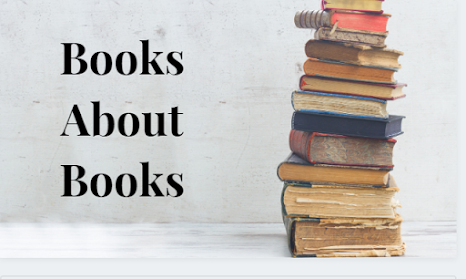More than just bbq's and beer, Labor Day is a celebration of all that American workers have achieved. The industrial revolution had workers laboring 12 hours a day 7 days a week, with children as young as 5 putting their lives at risk, for meager wages. Unsafe workplaces and practices led to the rise of labor unions in the late 1800s, which led to strikes, rallies, and riots. The rioting came to a head-on June 26, 1894, in Chicago, with the Pullman strike. Two days later on the 28th President Grover Cleveland signed into law, Labor Day as a legal holiday. (https://www.history.com/topics/holidays/labor-day-1)
Greenhouse, who covered labor for over two decades at the New York Times and won New York Press Club, Deadline Club, Gerald Loeb, and Hillman honors for his efforts, here addresses the long-term decline of labor power as wages stagnate, low-wage jobs multiply, and unions lose their clout. He profiles dozens of American workers to clarify these issues and argues for new ways that workers' power can be set fire again.
Edited by one of the nation's preeminent labor historians, this book marks an ambitious effort to dissent the full extent of War-Mart's business operations, its social effects, and its role in the U.S. and world economy.
The first biography of Crystal Eastman, this book tells the story of one of the most prominent social justice activists of the twentieth century. A founder of the ACLU, Eastman helped to shape the defining movements of the modern era--labor, feminism, peace, and free speech.
Looks at the remarkable men and women whose low-profile accomplishments contribute to the running of the nation, from coal miners and oil rig workers to migrant laborers and air traffic controllers.
A plea -- deeply personal and told through the lives of real Americans -- to address the crisis in working-class America, while focusing on solutions to mend a half-century of governmental failure.
Consisting of over one hundred interviews conducted with everyone from gravediggers to studio heads, this book provides a snapshot of people's feelings about their working lives, as well as a look at how work fits into American life.
"A debut memoir of grit and tenacity, as one young woman returns to the conservative hometown she always longed to escape to earn a living in the steel mill that casts a shadow over Cleveland. Steel is the only thing that shines in the belly of the mill... To ArcelorMittal Steel Eliese is known as #6691: Utility Worker, but this was never her dream. Fresh out of college, eager to leave behind her conservative hometown, and come to terms with her Christian roots, Eliese found herself applying for a job at the local steel mill. The mill is everything she was trying to escape, but it's also her only shot at financial security in an economically devastated and forgotten part of America. In Rust, Eliese brings the reader inside the belly of the mill and the middle American upbringing that brought her there in the first place. She takes a long and intimate look at her Rust Belt childhood and struggles to reconcile her desire to leave without turning her back on the people she's come to love. The people she sees as the unsung backbone of our nation. Faced with the financial promise of a steelworker's paycheck, and the very real danger of working in an environment where a steel coil could crush you at any moment or a vat of molten iron could explode because of a single drop of water, Eliese finds unexpected warmth and camaraderie among the gruff men she labors beside each day. Appealing to readers of Hillbilly Elegy and Educated, Rust is a story of the humanity Eliese discovers in the most unlikely and hellish of places, and the hope that therefore begins to grow"-- Provided by publisher.
On the clock: what low-wage work did to me and how it drives America insane by Guendelsberger, Emily
A college-educated young professional details the grueling realities of hourly labor for the fastest-growing segment of the American workforce while outlining strategies for more humane employment practices.
"After the local newspaper where she worked as a reporter closed, Emily Guendelsberger took a pre-Christmas job at an Amazon fulfillment center outside Louisville, Kentucky. There, the vending machines were stocked with painkillers, and the staff turnover was dizzying. In the new year, she traveled to North Carolina to work at a call center, a place where even bathroom breaks were timed to the second. And finally, Guendelsberger was hired at a San Francisco McDonald’s, narrowly escaping revenge-seeking customers who pelted her with condiments. Across three jobs, and in three different parts of the country, Guendelsberger directly took part in the revolution changing the U.S. workplace. ON THE CLOCK takes us behind the scenes of the fastest-growing segment of the American workforce to understand the future of work in America – and its present. Until robots pack boxes, resolve billing issues and make fast food, human beings supervised by AI will continue to get the job done. Guendelsberger shows us how workers went from being the most expensive element of production to the cheapest – and how low wage jobs have been remade to serve the ideals of efficiency, at the cost of humanity. ON THE CLOCK explores the lengths that half of Americans will go to in order to make a living, offering not only a better understanding of the modern workplace but also surprising solutions to make work more humane for millions of Americans." -- Publisher's description
Photobiography of the early twentieth-century photographer and schoolteacher Lewis Hine, using his own work as illustrations. Hines's photographs of children at work were so devastating that they convinced the American people that Congress must pass child labor laws.
Fannie Sellins (1872-1919) lived during the Gilded Age of American Industrialization when the Carnegies and Morgans wore jewels while their laborers wore rags. Fannie dreamed that America could achieve its ideals of equality and justice for all, and she sacrificed her life to help that dream come true. Fannie became a union activist, helping to create St. Louis, Missouri, Local 67 of the United Garment Workers of America. She traveled the nation and eventually gave her life, calling for fair wages and decent working and living conditions for workers in both the garment and mining industries. Her accomplishments live on today. This book includes an index, glossary, a timeline of unions in the United States, and endnotes.










